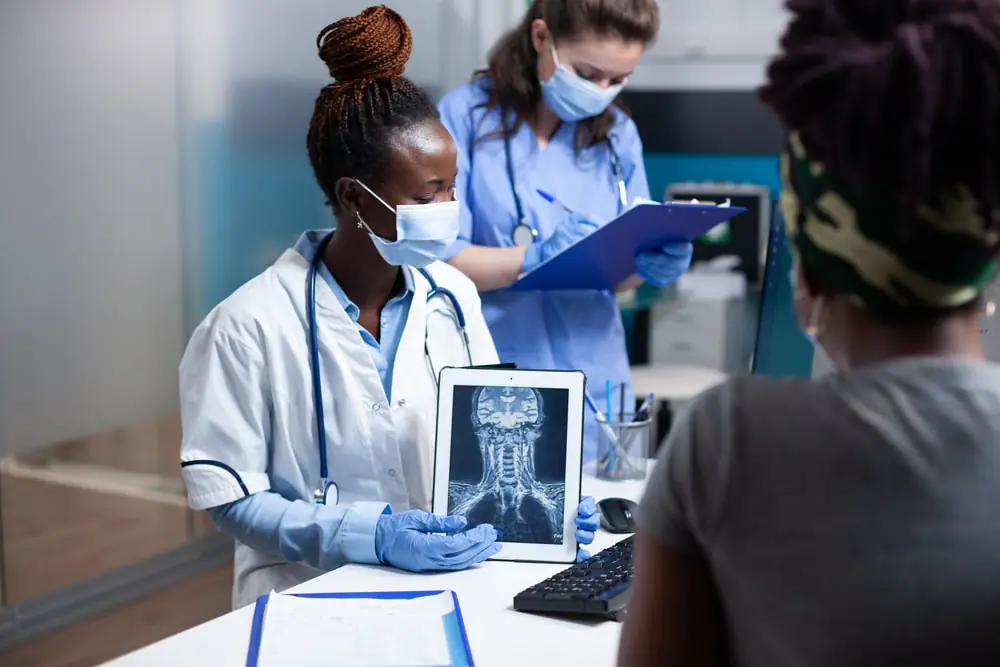
When you hear the term medical clearance for surgery, many might envision it as a mere formality akin to a routine approval. Yet, this perspective significantly understates the importance of what is involved. This procedure is more appropriately known as a preoperative examination. It is a critical and thorough evaluation that ensures the patient’s safety and the procedure’s success. It examines the patient’s medical history, present health, and potential dangers in greater depth than the basics.
This thorough examination is essential to developing a personalized surgical plan that addresses each patient’s unique health requirements. These steps ensure that the best care is given before any surgery. In this blog, we will discuss why medical clearance for surgery is essential, what it includes, and how it fits into surgical care.
Understanding Medical Clearance for Surgery
Medical clearance involves more than simply signing forms; it involves an in-depth evaluation conducted by healthcare professionals to ascertain whether an individual meets all the requirements to undergo surgery. This critical evaluation includes an in-depth review of both patient history and current health status and any existing conditions that might impede surgical outcomes.
Primarily, its goal is to identify any risks that might hinder or complicate a procedure or patient recovery so healthcare providers can devise ways to mitigate them early and ensure safer patient surgery experiences. A thorough approach such as this helps ensure patient safety, increase its success, and contribute significantly towards successful procedures.
What is a Pre Op Physical?
A pre-op physical examination is a vital component of the medical clearance for surgery, involving a detailed examination of the patient’s current health status. This assessment typically includes:
Medical History Review
This aspect involves delving into the patient’s medical journey, examining past and current health conditions, previous surgical experiences, and any hospital stays to build a comprehensive and informed medical profile.
Medication Assessment
Evaluation of Current Medication is an integral step. This involves reviewing all prescription, over-the-counter drugs, and dietary supplements currently taken by patients to see whether any could interfere with or be incompatible with surgery.
Physical Examination
An extensive checkup involves carefully evaluating an individual’s physical condition, from vital signs and organ functioning assessments to overall readiness evaluation for surgery.
Diagnostic Tests
Based on each patient’s history and surgery type, tests may include blood work, imaging studies, EKGs, and more specialized evaluations such as pulmonary function tests.
The Role of Preoperative Evaluation
Preoperative evaluation serves several critical functions in preparing for the surgery:
Risk Identification
It is identifying any underlying medical conditions that could complicate surgery or anesthesia.
Optimization of Health Status
Addressing controllable factors, such as blood sugar in diabetics or blood pressure in hypertensive patients, to minimize surgical risks.
Informed Decision Making
We are providing clear information about potential risks and benefits to the patient and the surgical team, aiding in making informed decisions.
Planning for Post-operative Care
Anticipating potential postoperative needs, such as particular medications or monitoring, based on the patient’s overall health.
Importance in Different Types of Surgeries

The depth of the preoperative evaluation can vary depending on the type of surgery:
Minor Elective Surgeries
The evaluation might be relatively straightforward for less invasive procedures, focusing on immediate health concerns.
Major Surgeries
A full evaluation is very important for more complicated operations. This might include talking to specialists like cardiologists or pulmonologists.
Tailoring to Individual Needs
Understanding that pre-op clearance does not follow one set formula is key to navigating it successfully, since each evaluation depends on various elements such as your age, underlying conditions, and family background.
The Role of Primary Care Specialists
Primary care doctors often perform the initial preoperative evaluation. However, specialists may be involved, especially for patients with specific medical conditions. Their insights can be invaluable in optimizing the patient’s condition before surgery.
Myths and Misconceptions
There are several misconceptions about medical clearance for surgery:
It’s Just a Formality
As we’ve seen, it’s far more than that. It’s a comprehensive assessment critical to surgical safety.
It Guarantees Safety
While it significantly reduces risks, it cannot guarantee that there will be no complications.
Only Physical Health Matters
Mental and emotional health are also considered, as they can impact recovery and surgical outcomes.
Preoperative Evaluation and COVID-19
Preoperative evaluations for COVID-19 have included further viral screening. This procedure is critical for preventing the transmission of infection and identifying individuals who may be at higher risk of COVID-19 problems if they have surgery.
The Role of Urgent Care Centers
Urgent care centers are now essential to preoperative evaluations since they assist patients in receiving speedy pre op surgery clearance. They are more convenient since they provide immediate access to services and frequently work longer hours than regular offices. These websites benefit patients who need to be evaluated immediately for elective operations. Trained urgent care professionals staff these centers and have all the equipment necessary to do comprehensive physical exams, which are required to determine whether a patient is ready for surgery. They can also consult with a network of experts, ensuring that preoperative treatment is comprehensive. Pressing care centers benefit the healthcare system by addressing pressing needs before surgery and collaborating with other doctors.
Need Help to Get Medical Clearance for Surgery
Medical clearance for surgery, also known as prior review, is a critical element of surgery. It is not simply a physical exam but a comprehensive assessment of the patient’s overall preparedness for surgery, considering mental and physical health. As part of this extensive approach, potential health issues are identified and addressed before therapy. It also aids in developing a specialized post-operative care plan, which is critical for a speedy recovery. Advanced Urgent Care of Pasadena is the finest place to get a thorough and rapid pre-op checkup. They are known for providing excellent, customer-focused care. Prioritizing patient safety and well-being, they conduct thorough assessments that lay the groundwork for successful surgical outcomes.

